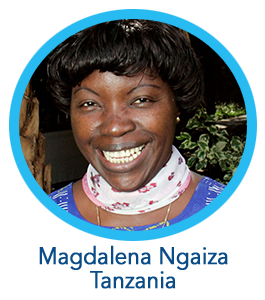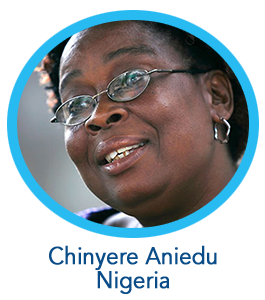
Mary Opoku-Asiama
Director of the Women in Agricultural Development Directorate, Ministry of Agriculture, Ghana
Imagine a room filled with more than 50 secondary school students, many just starting to think about their future goals. On this particular day, students in Accra, Ghana are learning about careers in agriculture. Contrary to what many in the room think, it’s not just about farming. Rather, they might become forestry experts, wildlife conservationists, food scientists or agronomists. The list goes on. Sponsored by the Association of Women Leaders in Agriculture and the Environment-Ghana (AWLAE-Ghana), the career day was designed to pique students’ interest — particularly that of girls — in agricultural degrees and jobs.
“It’s important to get young people interested in agriculture,” says Mary Opoku-Asiama, director of the Women in Agricultural Development Directorate (WIAD) in Ghana’s Ministry of Agriculture. “Supporting young women in pursuing agricultural careers today is the best way of ensuring that women farmers’ needs are met – and family incomes increased – in the future,” she says.
Opoku-Asiama, an expert in pest management, received support from AWLAE to pursue a master’s degree in plant protection, which she uses to teach farmers how to use alternative pest control methods.
She has spent much of her career supporting women’s farming groups, especially those involved in processing agricultural produce. “Farmers use pesticides to increase their production and achieve better livelihoods, but are they using them safely?” she asks, citing examples of health and environmental dangers from farmers who fail to store or apply pesticides in a sound manner.
Over the years, Opoku-Asiama has helped women’s groups in central Ghana improve their ability to process fish, palm oil and cassava. In the village of Okyereko, 50 kilometers west of Accra, she encouraged local farmers to develop a cooperative and introduced them to like- minded groups so they could exchange ideas and strategies. As a result, local farm families are far more productive today.
Opoku-Asiama learned about the importance of empowering others through AWLAE’s Leadership for Change training. “The training encouraged me to help other women,” she says. “I became more biased toward them in all my professional activities, and more assertive as an individual.”
 |
 |
